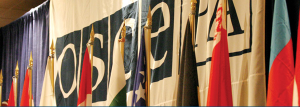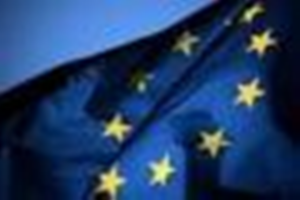
The decision of the OSCE Parliamentary Assembly Mission monitoring the Armenian Presidential Election last week to issue a separate statement at a separate Press conference from the rest of the joint international monitoring effort raised speculation about differences in the conclusions of the two groups. Asked about this during their Press Conference, the representatives of OSCE/ODIHR downplayed the issue and presented it as more of a technical decision rather than a political one. But was it? A few days later at the General Assembly of the OSCE PA in Vienna it was announced that “a committee of parliamentarians headed by Francois-Xavier de Donnea (MP, Belgium) will have the mandate to negotiate on behalf of the Assembly with the OSCE ODIHR regarding improved co-operation in future election observation missions.”
A statement on the OSCE PA website added: “The OSCE PA and the OSCE/ODIHR previously co-operated under a 1997 agreement that laid out the respective roles for the institutions and clarified that a parliamentarian appointed as special co-ordinator for the election observation mission would deliver the preliminary post-election statement on behalf of the OSCE. In December, after repeated challenges to that agreement that undermined appointed special co-ordinators, President Riccardo Migliori with support of the OSCE PA Bureau, declared the agreement no longer operable.”
There have been rumors for a number of years of problems between OSCE ODIHR and OSCE PA on election monitoring. For the sake of the credibility of the process this discussion now needs to be conducted with maximum transparency. More…


 The events of the last few days in the three South Caucasus countries caused concern. None was serious enough to trigger a crisis but all were serious enough to raise alarm bells and to highlight the question as to what is the end game of the EU with regards to the region on this issue. The soul searching has started and it will continue, probably until November or thereabouts when the EU expects either to welcome Armenia, Azerbaijan and Georgia closer to it through Association Agreements, or relegate all or some of them to the status of trade partners.
The events of the last few days in the three South Caucasus countries caused concern. None was serious enough to trigger a crisis but all were serious enough to raise alarm bells and to highlight the question as to what is the end game of the EU with regards to the region on this issue. The soul searching has started and it will continue, probably until November or thereabouts when the EU expects either to welcome Armenia, Azerbaijan and Georgia closer to it through Association Agreements, or relegate all or some of them to the status of trade partners. 
 The OSCE/ODIHR Election Monitoring Mission issued an interim report on 7 February in which it described the first two weeks of the presidential Election Campaign in Armenia as “low-key and of limited visibility”. The Mission has strived to go through the motions of monitoring the campaign despite the somewhat bizarre circumstances that have surrounded this election.
The OSCE/ODIHR Election Monitoring Mission issued an interim report on 7 February in which it described the first two weeks of the presidential Election Campaign in Armenia as “low-key and of limited visibility”. The Mission has strived to go through the motions of monitoring the campaign despite the somewhat bizarre circumstances that have surrounded this election.